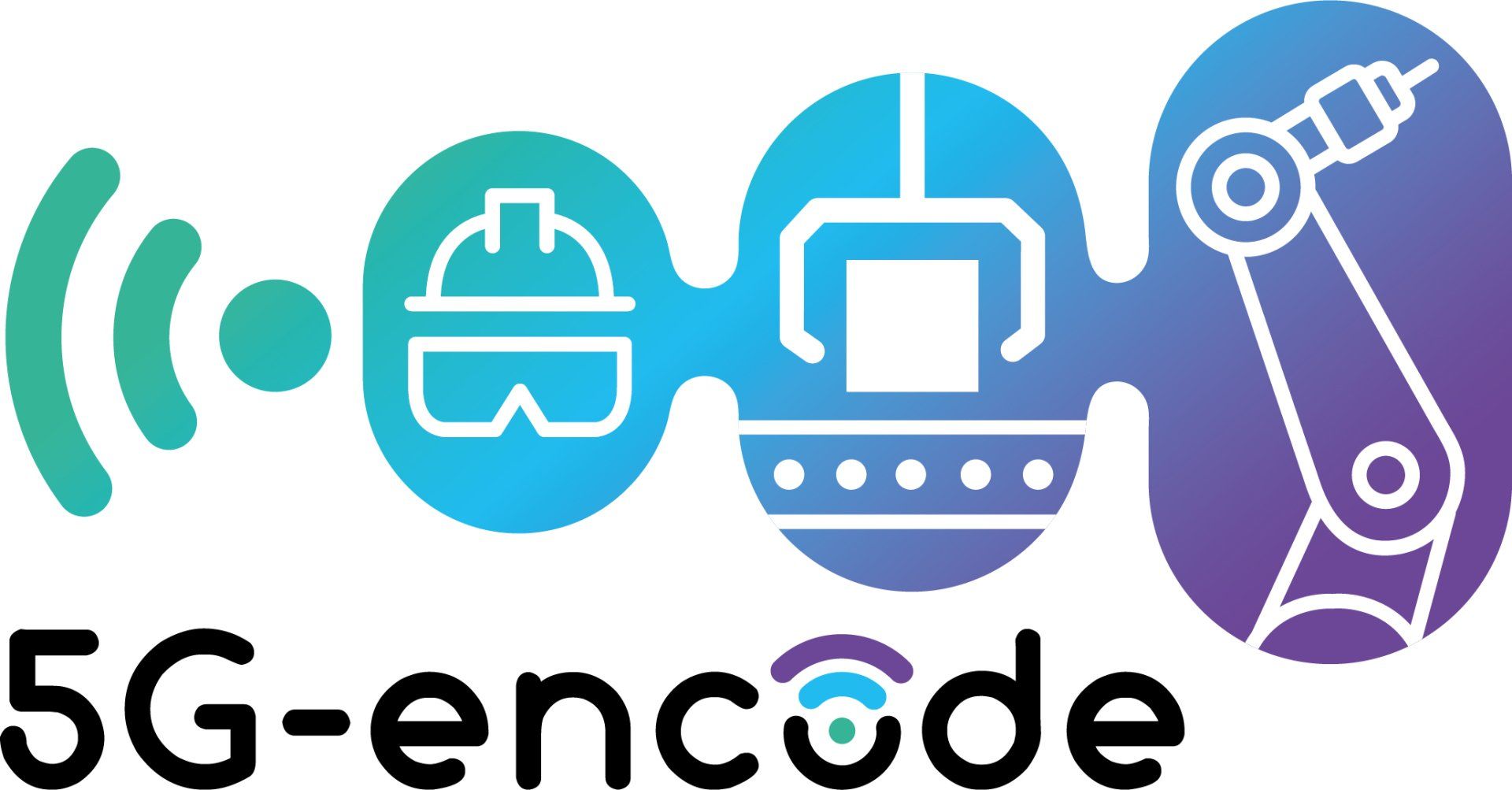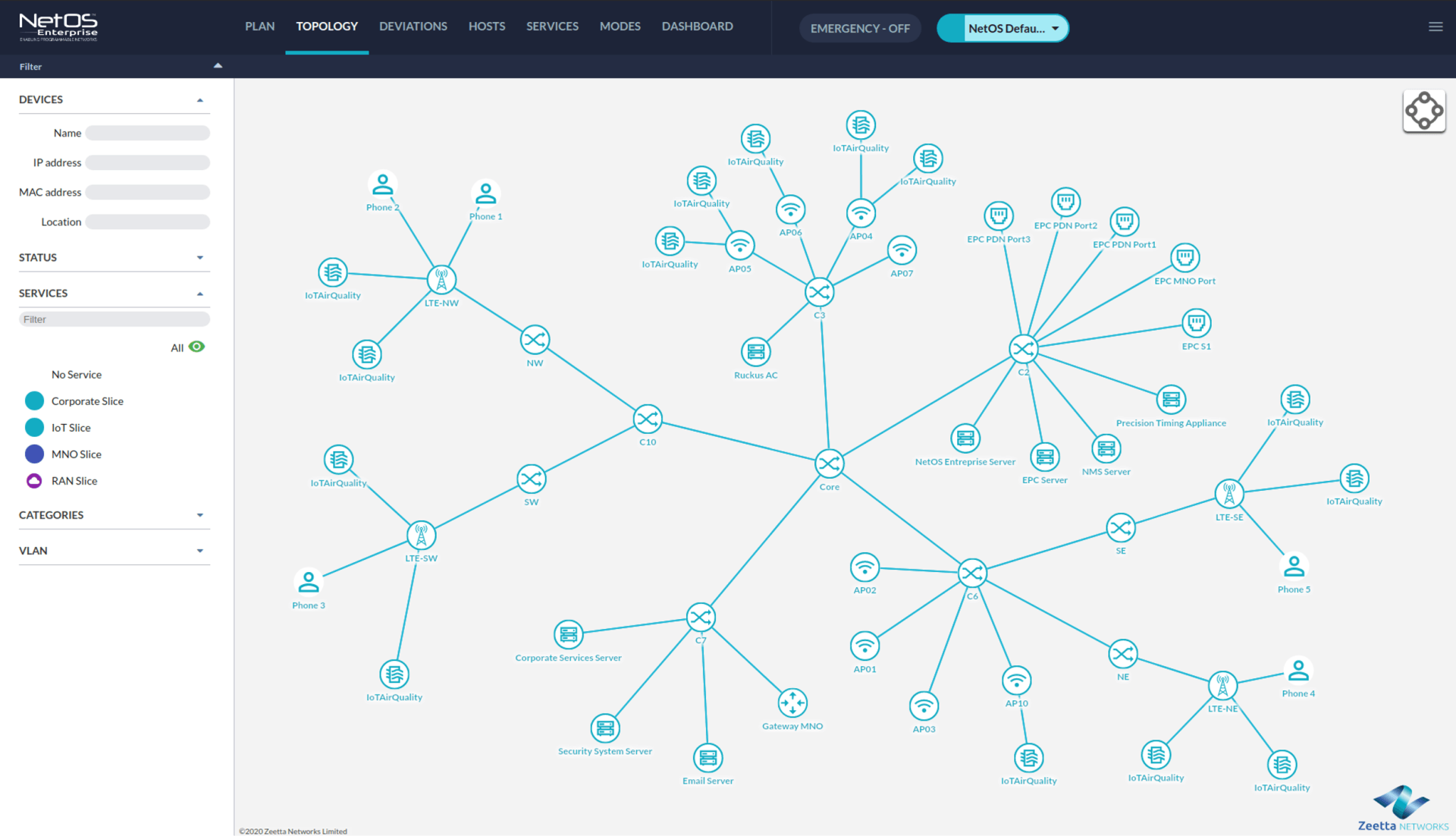
Top ten 5G trends for 2021
A joint interview with Vassilis Seferidis, co-founder and CEO at Zeetta Networks, a UK network provider, and leading partner of 5G-ENCODE, and Marc Funnel Head of Digital, National Composites Centre.
Original source: https://www.businesschief.eu/top10/top-10-global-5g-predictions-2021
1. Private 5G networks
In 2021, private 5G networks will be one step closer to becoming reality for businesses. A private 5G network is a local area network that uses cellular 5G technology to create a dynamically reconfigurable network. When compared to a public network, a private network enables greater control and can be far more cost effective for a business. Over the course of 2020 there have been many projects, such as 5G-ENCODE, set up to establish sector specific business use cases.
2. Network splicing and slicing
Not only does a private 5G network allow businesses far greater control, it can also host features such as network slicing and splicing. In 2021, there will be a greater understanding from businesses around these features and the specific benefits they can bring.
Network slicing and splicing supports a wide range of applications, enabling enterprises to create networks customised to their specific needs, increasing efficiency and productivity. It’s also a very efficient feature to enable private 5G networks to interact with public and other private networks outside of enterprise environment. This ensures only the correct level of connectivity is allocated to each user or device, therefore optimising performance and creating cost savings. Within a factory, for example, multiple different production equipment all require different levels of connectivity and varied degrees of latency and throughput.
3. Telco monetisation
In 2021, we will see telecommunications organisations ramp up their efforts to explore and establish enterprise uses for 5G. Many operators are already engaged with projects to do this, for example O2 and 5G-ENCODE, and Vodafone and Midlands Future Mobility. For telcos, the real return on investment for 5G will come from business deployment. As such, they are likely to jostle to establish leadership in this space, across a range of business sectors.
4. 5G economic impact
The economic impact that 5G will have on our global economy is monumental. In 2021, we’ll begin to see the frameworks for how 5G will impact our economies established, especially as the world looks to digital infrastructure to help recover from the economic impact of COVID-19.
The utilisation of 5G technologies and networks will unlock a vast range of revenue opportunities within manufacturing, education, healthcare, entertainment and many other sectors too. PWC predicts that by 2035, 5G technology utilisation will result in $13.2 trillion in global economic value, generating 22.3 million jobs in the global value chain alone.
5. 5G environmental impact
As businesses around the world look to operate more sustainably and efficiently, we will begin to see more organisations explore the role that 5G can play in helping to achieve this.
5G connectivity will enable organisations’ supply chains to work far more efficiently. For the manufacturing sector specifically, the level of automation that 5G will bring will allow for greater flexibility, lower costs and shorter lead times for factory floor production. From a sustainability standpoint, this is transformative. According to research by O2, the introduction of 5G to manufacturing processes could take up to 40 Megatonnes of carbon out of the economy by 2035.
6. Government investment
We’ve already seen the government demonstrate its commitment to exploring the benefits and challenges of deploying 5G in a wide range of environments through its 5G Testbeds and Trials Programme.
In 2021, we’ll continue to see government support for the UK’s research into 5G. Indeed, they’ve committed to investing £50 million in 2021 as part of a £250 million commitment to building a secure and resilient 5G network.
7. Business awareness
As we move into 2021 and 5G use cases become far more tangible, awareness amongst organisations will dramatically increase. We’ll see this within a wide range of industries, from manufacturing and healthcare, to education and automobile.
Leading players in telecoms have a key role to play here in educating businesses. As we get closer to mass deployment, it’s critical that organisations are clued up about what 5G can offer their business. Clear, informative communications will be essential.
8. British born technology
[Marc Funnel] Britain is home to cutting edge technology providers who are taking low latency networking to market, and for ease and reliability we use their supply chain. What we’re missing is the eco system for end devices, which is a great onshoring opportunity considering the impact of Covid-19 upon global supply chains.
5G networks will potentially unlock a level of private networking solutions and opportunities for smaller British technology companies, also driven by Ofcom making sufficient space on the spectrum. 5G will fuel British born technology growth, we’ll see more companies like Zeetta Networks, who will provide services to the 5G community.
9. Discover new use cases
[Marc Funnel] From an innovation perspective, 5G will enable ultra-reliability and ultra-security. These are fundamental enablers to all Industry 4.0 use cases on productivity, right first-time manufacturing for closed loop control around the factory, asset tracking, predictive maintenance and infield/in service management and optimisation, logistics and handling. As part of Digital Engineering Technology & Innovation (DETI) and 5G-ENCODE, we’re looking at use cases around VR and AR, the ability to adapt and utilise immersive and haptic technologies, distributed training scenarios, all which require higher densities, speeds and feeds of data down the lines to unlock their benefits and enhance advanced design and manufacturing.
10. 5G favoured over 4G and WiFi
[Marc Funnel] There are two key themes that identify why we are looking at 5G over 4G and WiFi; ultra-reliability to enable machine connectivity and ultra-security to ensure that no one can tamper with the data when its inside our factories. We are moving towards not just more machine connectivity but higher data rates and higher density of data, so higher definition of data – especially when you’re looking at image recognition, and speech and language interoperability with machines. 5G is giving us the power to unlock these use cases. Quantum Key Distribution and 5G will be key in securing data traffic between sites.





